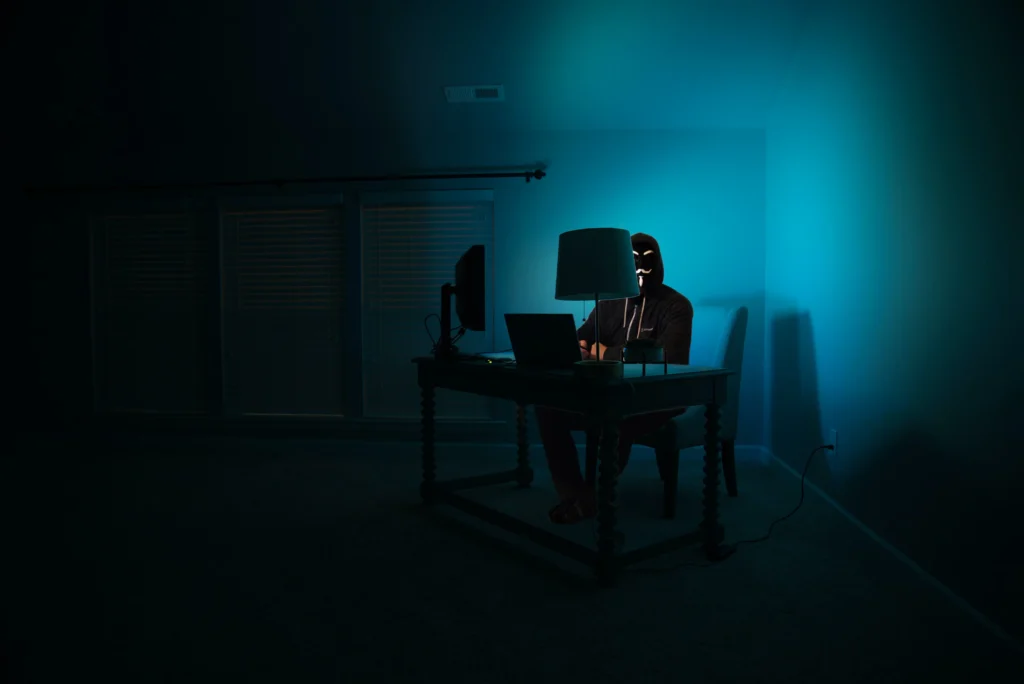Silk Road: Inside the Rise and Fall of the Infamous Online Marketplace

What is that code ? - Photo by Mika Baumeister
Silk Road was an infamous online marketplace that operated on the dark web from 2011 to 2013. It gained notoriety as a platform where users could buy and sell drugs, fake identification documents, and other illegal goods and services. Despite the efforts of law enforcement agencies, Silk Road operated for several years before it was finally shut down. In this article, we will explore the history of Silk Road, how it operated, and the eventual takedown of the website.

Loosing my Mind ... - by Andrew Neel
Silk Road's success was due in part to its innovative use of technology to provide anonymity and security for its users. By operating on the dark web, Silk Road was able to ensure that all communication between buyers and sellers was encrypted and untraceable. Transactions were conducted using Bitcoin, a decentralized digital currency that allowed for anonymous transactions.
The site's founder, Dread Pirate Roberts, was a pseudonym used by Ross Ulbricht. Ulbricht was a libertarian who believed that the government had no right to restrict an individual's freedom to buy and sell drugs. He saw Silk Road as a way to provide a safe and anonymous marketplace for drug users and believed that it would reduce the harm associated with drug use by allowing users to purchase drugs of a known quality.
Silk Road quickly gained popularity among those looking to purchase drugs and other illegal goods. The site featured an extensive selection of drugs, including cannabis, cocaine, heroin, and MDMA, as well as fake identification documents and other illegal goods and services. The site's user base grew rapidly, and by the time it was shut down, Silk Road had over 1 million registered users and had facilitated over $1 billion in transactions.
The site's founder, Dread Pirate Roberts, was a pseudonym used by Ross Ulbricht. Ulbricht was a libertarian who believed that the government had no right to restrict an individual's freedom to buy and sell drugs. He saw Silk Road as a way to provide a safe and anonymous marketplace for drug users and believed that it would reduce the harm associated with drug use by allowing users to purchase drugs of a known quality.
Silk Road quickly gained popularity among those looking to purchase drugs and other illegal goods. The site featured an extensive selection of drugs, including cannabis, cocaine, heroin, and MDMA, as well as fake identification documents and other illegal goods and services. The site's user base grew rapidly, and by the time it was shut down, Silk Road had over 1 million registered users and had facilitated over $1 billion in transactions.

Hacking Away - by Clint Patterson
Despite its popularity, Silk Road was not immune to controversy. The site was criticized for its facilitation of illegal drug use and its potential to enable drug dealers to operate with impunity. There were also concerns about the site's security, with reports of user accounts being hacked and personal information being leaked.
In 2013, law enforcement agencies began to investigate Silk Road. The investigation was led by the FBI and involved collaboration with law enforcement agencies around the world. In October of that year, the site was finally shut down, and Ross Ulbricht was arrested.
Ulbricht was charged with a range of offenses related to his involvement with Silk Road, including money laundering, drug trafficking, and computer hacking. He was found guilty on all charges and was sentenced to life in prison without the possibility of parole. The takedown of Silk Road was seen as a significant victory for law enforcement agencies, but it also highlighted the challenges of policing the dark web and the need for new approaches to combat online crime.
In 2013, law enforcement agencies began to investigate Silk Road. The investigation was led by the FBI and involved collaboration with law enforcement agencies around the world. In October of that year, the site was finally shut down, and Ross Ulbricht was arrested.
Ulbricht was charged with a range of offenses related to his involvement with Silk Road, including money laundering, drug trafficking, and computer hacking. He was found guilty on all charges and was sentenced to life in prison without the possibility of parole. The takedown of Silk Road was seen as a significant victory for law enforcement agencies, but it also highlighted the challenges of policing the dark web and the need for new approaches to combat online crime.

Let me OUT ! - by Karsten Winegeart
Silk Road was a groundbreaking and controversial online marketplace that operated on the dark web for several years. Despite its illegal nature, its innovative use of technology made it difficult for law enforcement agencies to track down its users. However, the site's eventual takedown was a significant victory for law enforcement agencies, and its legacy continues to be felt in the ongoing debates over drug policy and online privacy. Today, Silk Road remains a cautionary tale about the dangers of unregulated online marketplaces and the need for new approaches to combat online crime.
- Article by Fred Trivett
